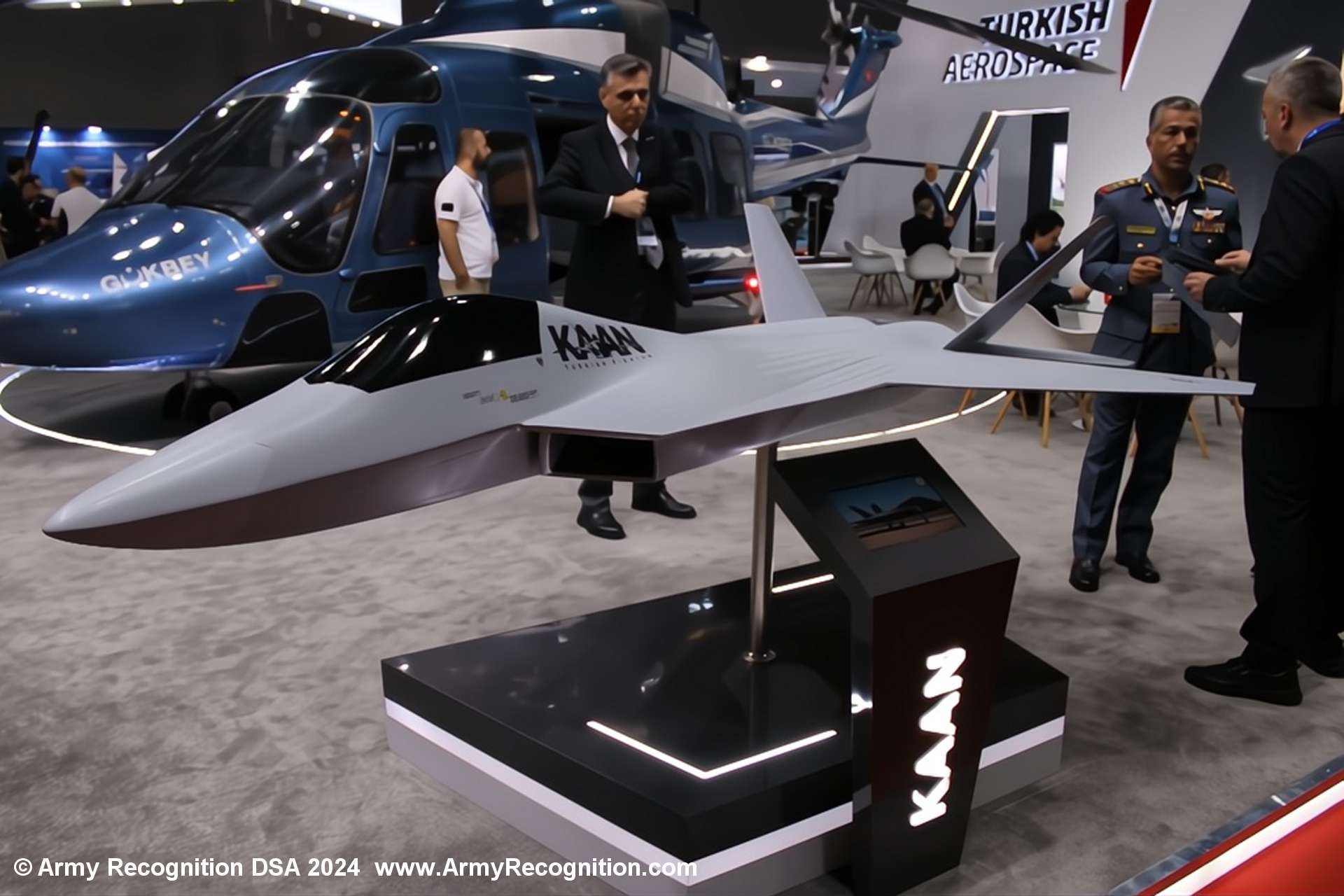Breaking news
DSA 2024: Turkish Aerospace Industries Introduces Fifth-Generation Stealth Fighter KAAN After Successful Test Flight.
At the Defence Service Asia (DSA) 2024 in Malaysia, Turkish Aerospace Industries (TAI) showcased its ambitious fifth-generation stealth fighter project, KAAN. This introduction followed the second test flight of the KAAN prototype, which occurred on May 7, 2024. During this test, the aircraft flew for 14 minutes, reaching speeds of 230 knots and an altitude of 10,000 feet, as previously reported by ArmyRecognition.

Mock-up of the KAAN introduces by Turkish Aerospace Industries at DSA 2024 (Picture source: ArmyRecognition)
The KAAN project, launched in 2016 with an investment of $1.18 billion to secure the necessary technologies, benefits from collaboration with international firms such as BAE Systems from the United Kingdom and Rolls-Royce for engine design and development. Choosing the EJ200 engine, which enables supercruise, KAAN is designed to offer advanced operational capabilities, including the ability to fly at supersonic speeds without afterburners. With dimensions of 14 meters in wingspan, 21 meters in length, and 6 meters in height, KAAN can reach a maximum speed of Mach 1.8 and a service ceiling of 55,000 feet. The aircraft is also designed to be interoperable with other critical assets of the Turkish Air Force, such as the F-35A, enhancing its operational effectiveness in joint missions.
The KAAN program aims to modernize the Turkish aerial fleet and bolster the national defense industry by developing local engineering and production capabilities. The project ensures that Turkey retains intellectual property rights over key technologies, particularly for the engine, a crucial aspect for the country's strategic autonomy. The involvement of international partners and a focus on local production reflect this ambition.
In recent years, Turkey has emerged as a significant player in the armament industry, significantly enhancing its weapon production capabilities in both the public and private sectors. Companies such as Turkish Aerospace Industries (TAI), ASELSAN, and Roketsan have become well-known names in the production of advanced military equipment, thanks to substantial investments in research and development. A notable example of their success is the Bayraktar TB2 drone, which played a pivotal role in the Nagorno-Karabakh conflict, demonstrating Turkey's strike and surveillance capabilities and sparking international interest.
Turkey has successfully exported military equipment to several countries. Ukraine, Qatar, and Azerbaijan, among others, have purchased Turkish drones, while nations in Africa and Asia have also imported various Turkish military equipment, ranging from armored vehicles to air defense systems. This expansion of exports is strategically beneficial for Turkey, not only in terms of revenue but also in defense diplomacy.
Simultaneously, Turkey has heavily invested in developing local production to reduce its dependence on foreign suppliers. This move towards self-reliance is exemplified by ambitious projects such as the development of its fifth-generation fighter, KAAN, aimed at replacing aging F-16 fleets and circumventing challenges related to foreign technology procurement. These efforts underscore Turkey's commitment to strengthening its strategic autonomy and asserting its status as a regional and global military power.


























